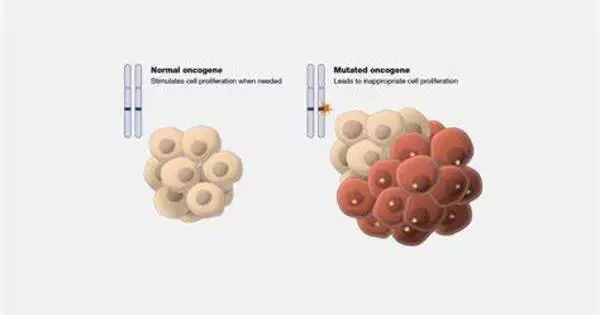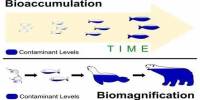An oncogene is a gene that has the potential to cause cancer. It is a type of gene that has the potential to cause cancer. These genes are frequently mutated or expressed at high levels in tumor cells. These genes are typically involved in the regulation of cell growth, division, and normal cell function. Certain changes or mutations in these genes can contribute to the development of cancer.
When critical functions are altered or malfunction, most normal cells will undergo a programmed form of rapid cell death (apoptosis). Activated oncogenes can cause apoptotic cells to survive and proliferate instead.
Through mutations or other alterations, oncogenes can be derived from normal cellular genes, known as proto-oncogenes. Proto-oncogenes are critical regulators of cell division, apoptosis (programmed cell death), and other cellular processes. When these genes are mutated or undergo other changes, they can become oncogenes, which promote uncontrolled cell growth and division.
There are several ways in which oncogenes can be activated:
- Point Mutations: Changes in the DNA sequence, such as nucleotide substitutions, can activate an oncogene.
- Gene Amplification: The duplication of a chromosomal region, which results in an increased number of copies of a specific gene, can result in the overexpression of an oncogene.
- Chromosomal Translocations: Structural changes in chromosomes, such as the translocation of a piece of one chromosome to another, can place an oncogene under the control of a different regulatory element, leading to its overactivation.
- Viral Integration: Some viruses can integrate their genetic material into the DNA of the host cell, including near or within proto-oncogenes, activating them.
Oncogenes function in contrast to tumor suppressor genes, which normally regulate cell division and prevent tumor formation. Mutations that activate oncogenes or inactivate tumor suppressor genes can result in uncontrolled cell growth and the development of cancer. Understanding oncogenes is critical for cancer research and the development of targeted therapies. Certain types of cancer can be treated with drugs that specifically target the products of oncogenes or their downstream signaling pathways.
Most oncogenes began as proto-oncogenes, which were normal genes involved in cell growth and proliferation or apoptosis inhibition. Normal genes that promote cellular growth that are up-regulated due to mutation (gain-of-function mutation) predispose the cell to cancer and are thus referred to as “oncogenes.”
Multiple oncogenes, as well as mutated apoptotic or tumor suppressor genes, usually work together to cause cancer. Hundreds of oncogenes have been identified in human cancer since the 1970s. Many cancer drugs target oncogene-encoded proteins. Because oncogenes are a physically and functionally diverse group of genes, their protein products have pleiotropic effects on a variety of intricate regulatory cascades within the cell.
















